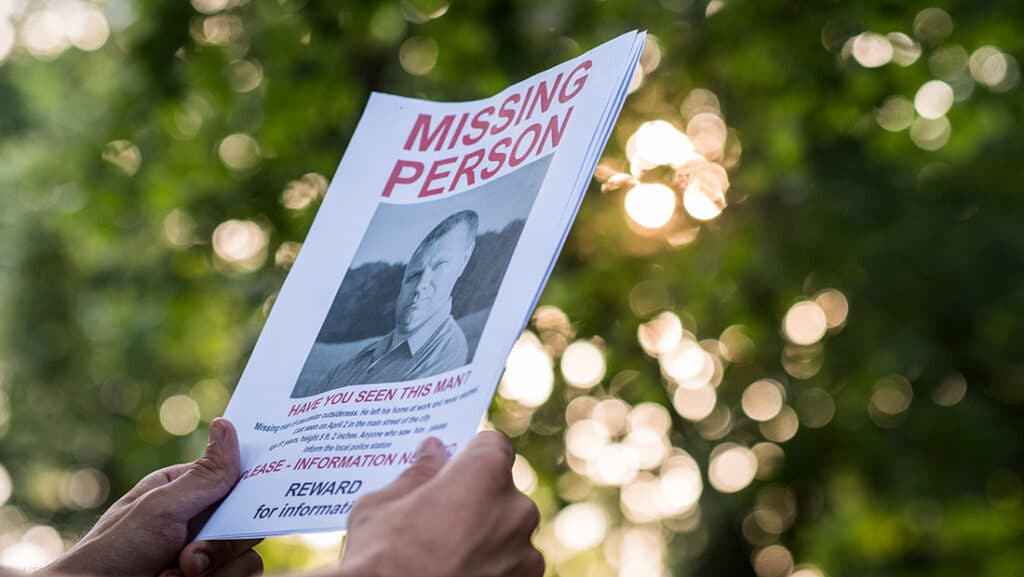Missing person services are a common offering for private investigators, and many highlight that capability on their websites, social media, and more. If you’re here, you may already know the basics about taking on a missing person case, how to research, and so on. But if it’s never really been a large part of your business, or you’d like to expand into new services, then it’s time to take a look at key tips when getting started. Here’s what to keep in mind.
Advertise for Many Different Situations
When advertising your missing person services, try to be as comprehensive as possible. While some cases will be more common than others, people may have many reasons to ask about your services. Not all missing persons involve criminal activity or skip tracing. You may also want to reference things like:
- Estranged family members looking for siblings
- Adopted kids looking for their birth parents
- Seeking witnesses to a crime that may have happened
- Elderly relatives or children who have gone missing, but cases aren’t being investigated by law enforcement
- Attorneys looking for heirs
- People who are missing but their families don’t appear to care
- Tenants skipping out on a lease, or debtors on a foreclosure, etc.
Cast a wide net, and you will be more likely to pick up new clients looking for specific services.
Screen Your Clients
Don’t forget this important step when taking on new missing person cases – the person asking you to investigate may need a little investigating themselves. Not everyone is trying to find a missing person for legal or ethical reasons. It’s very common for domestic abusers to try to hire a PI to seek someone that is fleeing them, for example. Stalkers may try this as well. Others may be convinced a person is missing when they have been proven to be dead. Because of these and other reasons, verify the person asking you for help. Do a basic screening to make sure they don’t have any criminal intent and aren’t suffering from issues that you’re unable to help with.
Stay Up to Date on the Latest Software
The bulk of missing person cases is typically done online. That means your success may depend on your mastery of online research tools and experience. That includes investigating social media, finding information brokers, and using your accounts on anything from Ancestry.com to Federal Inmate Locator. The online tools you have at your fingertips, the faster you’ll be able to produce results.
The person asking you to locate a missing person may be able to provide you with account login information for things like their email, etc. However, it may be legally risky to use this account information without direct permission from the owner, so you may want to avoid relying on this unless it’s a type of joint account that your client also uses.
Master the Flow Chart
Few tools are as useful at the beginning of a missing person investigation as the flow chart. The goal is to put together as much information as possible about the person’s last whereabouts and actions, and then explore the most likely actions they took next. Your client may be able to provide plenty of useful information here, but you can find a lot of data with your own research, too. As the flow chart begins to progress, it becomes an easy tool to decide what to investigate first, and what alternatives to explore afterward.
Provide a Record of Your Professionalism and Results
Missing person cases can be very serious. People looking for help will want to know that you have the experience and professional tools to do the job. They may also be looking for a consultation to decide what to do when a person is found, or if a person can’t be located. While you should keep your cases confidential, provide basic testimonials if possible, and be upfront about your fee structure.
Know When to Contact Law Enforcement
When looking for a missing person, you may find evidence of criminal activity. If it appears that someone’s life may be in danger or you find something similarly serious, it’s probably time to contact law enforcement with your information. It’s a good idea to discuss this with your client first.
Take Training for the Emotional Aspect
A missing person case can lead to a lot of emotions, and it’s not uncommon for clients to break down or have intense reactions from what they learn. If that makes you uncomfortable, it’s a good idea to look up local emotional counseling classes and see if that kind of training option works for you. Even a basic class on dealing with mental health crises and similar situations can be very helpful.
Final Notes
These tips and other missing person practices are an excellent way to brush up on many PI research skills and learn new abilities for your research. Remember to create a solid marketing plan that will clearly state how you can help locate missing people, and have the right liability insurance before taking on a case. This type of insurance can help you if a case takes an unprecedented turn or you are sued for your actions during or after locating a missing person.






